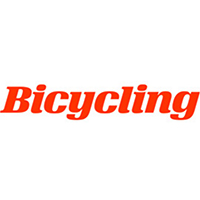Stop Stressing Over Flats
Don't wait until you're on the road to hone your flat-changing skills, says Lennard Zinn, author of Zinn and the Art of Road Bike Maintenance. "Practice changing a tire in the comfort of your garage using the same pump and tools you carry on your ride, and you'll be less worried about getting a flat far from home."Ride a Fast 100
Take a cue from the pro peloton and ride with a group of friends, says 1984 Olympic gold medalist Connie Carpenter. "Cycling is always more fun—and faster—in a group. And don't stop for long at the aid stations, if at all."
Find the Right Saddle Height
"Lean against a wall, sit on the saddle, then hang both feet straight down," says Todd Carver of the bike-fitting company Retül. "If your saddle height is correct, your heel should just graze the pedal at the bottom of the pedal stroke." If you have pain in the front of your knees after the first few rides, your saddle is probably too low. If you feel pain in the back of the knee, drop the saddle a little.
The 5 Steps to Finding the Right Saddle Height
Drink Responsibly
It's okay to glance down at your bottle before grabbing or replacing it, says former Tour de France rider Frankie Andreu, "but keep your eyes on the road as you reach. Don't tilt your head to get the water into your mouth--tilt the bottle." "If something comes up while you're drinking," adds mountain bike pro Todd Wells, "bite the bottle until you're through the tricky part."Shift Like Butter
Anticipation is the key to proper shifting, says Frankie Andreu. "To make the transition smoother, try to change gears just before you really need to." Tom Zirbel recommends shifting at the dead spot of your pedal stroke, when your feet are at 12 and 6 o'clock. "The less pressure you put on the pedals," he says, "the more reliable your derailleurs will be."
Remove Arm Warmers on the Fly
First, peel them down to your wrists,says Todd Wells. "then take them off one at a time and put them in your jersey pocket. If you're not comfortable taking both hands off the bar, use your teeth to pull the warmers off your wrists."
More: 8 Cycling Hand Signals for Your Next Group Ride
Descend with Confidence
Stay loose when plunging down a hill, says Chris Carmichael. "If you're stiff, you'll be rigid and skittish. Get your hands into the drops to lower your center of gravity and put weight on the front wheel. On downhill turns, focus your weight on your outside foot and inside hand. This will help you maintain an inside line."Eat Predictably
"Never eat anything new on race day," says cross-country pro Heather Irmiger. "If you eat a bowl of cereal every morning, stick with it. Experiment on training days."
The Ultimate Century Training Plan
Your Preride Checklist
"Do this quick exam before every ride," says former ProTour mechanic Daimeon Shanks, founder of The Service Course, in Boulder, Colorado.
- Wheels: They should spin straight and not rub the brakes. Make sure your tires have plenty of tread and no cuts or large nicks, and that they are properly inflated.
- Chain: Too much lube will attract dirt and grime, which wears out your drivetrain. A good test is to wipe your finger on your chain. It should come away with just a small amount of oil.
- Cockpit: Check your headset by grabbing the front brake and rocking the handlebar back and forth. If you feel movement in your headset, loosen the stem's clamp bolts and tighten the top cap until there is no more movement. Don't forget to retighten the stem bolts before you ride.
More: 23 Fun Facts You Didn't Know About the Tour de France
 Ready to ride? Search for a cycling event.
Ready to ride? Search for a cycling event.


